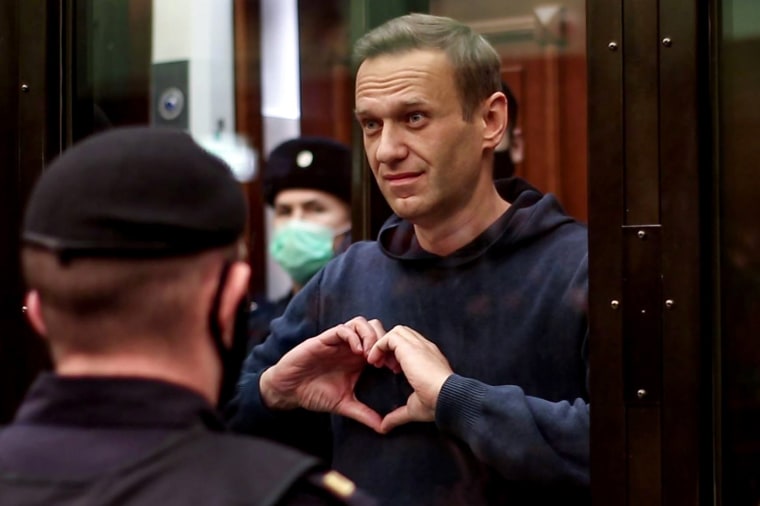Last Wednesday, the Biden administration announced yet another round of sanctions on Russia. The sanctions were quickly characterized by some as weak and likely to be ineffectual in changing Russian behavior, while others have called them the toughest and broadest in three years. This Wednesday, Russians are expected to take to the streets en masse in support of Kremlin critic Alexei Navalny, who is in the third week of a hunger strike and was transferred Monday from a Russian prison to a hospital nearby because he is reportedly near death. Biden national security adviser Jake Sullivan told CNN on Sunday that there will be further consequences should Navalny die as a result of his treatment (or lack thereof) in the Russian prison system.
Biden national security adviser Jake Sullivan told CNN on Sunday that there will be further consequences should Navalny die as a result of his treatment (or lack thereof) in the Russian prison system.
But in the context of Russia, what do consequences mean? Previous rounds of sanctions under former Presidents Barack Obama and Donald Trump don’t appear to have ended Russia’s increasingly aggressive challenges to the United States, or its assault on human rights domestically. A reasonable observer might ask, therefore, why does President Joe Biden bother?
Sanctions, by nature, are a relatively weak and imprecise instrument of pressure in international relations. They can take years to actually change the behavior of the targeted state, if they ever actually do. Still, sanctions can matter a great deal depending on what the goal is and the broader context. In this most recent case, we need to remember that the goal of this round of sanctions is not to topple Russian President Vladimir Putin’s increasingly autocratic regime; nor is the point of them to force Russia to withdraw from the long-simmering conflict in eastern Ukraine; nor were they intended to destroy the Russian government’s ability to conduct cyber hacking into American firms, as it did in 2020 with the SolarWinds attack.
Instead, the purpose was to send a simple and direct message that Biden intends to punish past malign behavior and to deter similar attacks in the future by increasing the cost of doing so for Putin’s regime. Biden also doubtless wants to signal that his approach to Russia will be rather different from that of his predecessor, the Putin-adoring Trump.
For the first time, in this set of sanctions, the United States is going directly after an important aspect of the Russian economy by banning American financial institutions from purchasing Russian government debt. American institutions can still hold Russian debt, but Biden’s sanctions prohibit American firms from buying new Russian government bonds directly from the Russian Central Bank, Ministry of Finance, and the Russian Direct Investment Fund. Although these bonds can still be purchased on the secondary market, the effect of the sanctions will be to make Russian bonds less attractive to investors.
Informed readers will argue that Russia doesn’t actually have that much debt anyway, so this won’t matter to its overall macroeconomic health. That’s true; Russia has a relatively low debt to gross domestic product, or GDP ratio (most recent figures from the World Bank put it at 14.2 percent vs. the U.S at 99.0 percent.) This is a fact that is often overlooked amid the mistaken narrative that the Russian economy is incurably weak. But again, the intention of these sanctions is to make things a little more uncomfortable for Putin’s government, not to have a truly disastrous effect on the Russian economy. Russian decisionmakers should be reminded by this set of sanctions that the United States could really mess with Russia’s economy should we so choose.
Biden could indeed go much farther if the need arises in future. He could, for example, cut Russia off from the global SWIFT financial transaction and communication system, which would prohibit the completion of electronic international monetary transactions. In theory, the U.S could sanction any company that does business with Russia, period. But these would be extreme measures that presumably would be a last resort and in response to much greater provocations by Russia.
Given this context, Biden seems to have made a very reasonable first move — using sticks and carrots to both punish and hopefully re-engage meaningfully with Russia after the instability of the last four years under Trump. There is no contradiction between imposing sanctions that are deep enough to get the Russians’ attention, while also offering a presidential bilateral meeting. Indeed, even after issuing countersanctions at the end of the week, Russian officials kept their response proportionate: expelling 10 American diplomats and banning a few American officials from Russia who likely never wanted to go there anyway.
Conspicuously absent in the official Russian reaction to Biden’s new sanctions was any indication that Putin would be refusing to meet with his U.S. counterpart over the summer. The well-being of both countries is too important to forgo this opportunity. At this point for Biden, sanctions are a means to the end of stabilizing (but not necessarily harmonizing) the future U.S.-Russian relationship. Neither Biden or Putin is yet interested in ending it completely. But something unexpected — Navalny’s death in a Russian prison cell, for example — could change the calculus completely.


